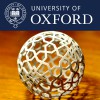Atalia Omer - Pathways toward a Jewish Israeli Restorative Ethics
In the same way that it is no longer possible to talk about antisemitism without also thinking about Israel/Palestine, it is no longer possible to imagine Jewish ethics outside the realities of Jewish power. My focus here is on when such thinking unfolds through a restorative justice prism or carries a restorative justice potential. At stake is not only a Jewish critique of Zionism, but also justice for Palestinians. The two issues are forever enmeshed. Examining Judith Butler’s relational ethical analysis of Zionism in her Parting Ways and Michael Manekin’s recent The Dawn of Redemption, I argue that, to the degree that restorative justice practices are missing from ethical Jewish reflections on Zionism and Israelism, the sources of such Jewish critiques of Zionism remain diasporic. Butler approaches it from the comfort of diasporic “authenticity,” while Manekin reclaims a Jewish (Israeli) ethics from within the realities of Jewish Israeliness and with an effort to reimagine religious Zionism as gentle and kind. At the same time, focusing on Jewish Israeli restorative justice practices and potentials, including Zochrot, young “refusniks,” and the petition of Jewish Israelis against Israel apartheid propelled by the escalation of violence in May 2021, offers a pathway for unsettling the diasporic as the primary source of ethical critique of Israelism. These restorative pathways constitute sources for Jewish ethics from the ground up where the experiences of Jewish power and Israelism can no longer be bracketed or magically theorized out of existence as “inauthentic.”
Atalia Omer is a Professor of Religion, Conflict, and Peace Studies at the Kroc Institute for International Peace Studies and at the Keough School of Global Affairs at the University of Notre Dame in the United States. She is also the Dermot T.J. Dunphy Visiting Professor of Religion, Violence, and Peace Building at Harvard University and a senior fellow at the Religion, Conflict, and Peace Initiative at Harvard University’s Religion and Public Life program. She earned her PhD in Religion, Ethics, and Politics (2008) from the Committee on the Study of Religion at Harvard University. Her research focuses on religion, violence, and peacebuilding with a particular focus on Palestine/Israel as well as theories and methods in the study of religion. Omer was awarded an Andrew Carnegie Fellowship in 2017 to complete a manuscript titled Decolonizing Religion and Peacebuilding. Among other publications, Omer is the author of When Peace is Not Enough: How the Israeli Peace Camp Thinks about Religion, Nationalism, and Justice (University of Chicago Press, 2015) and Days of Awe: Reimagining Jewishness in Solidarity with Palestinians (University of Chicago Press, 2019). She is also a co-editor of the Oxford Handbook of Religion, Conflict, and Peacebuilding (Oxford University Press, 2015).




